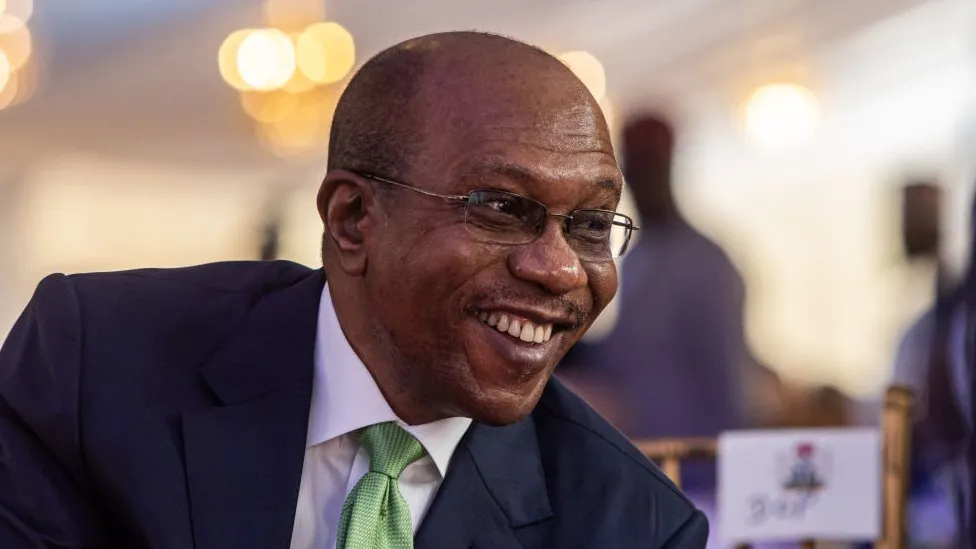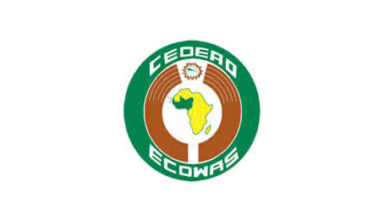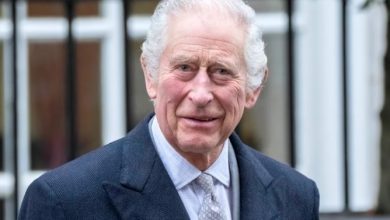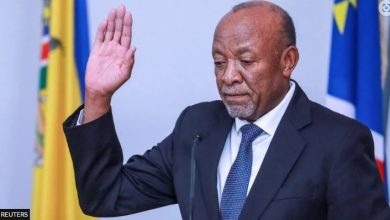IS ‘may be linked’ to Sri Lanka attacks
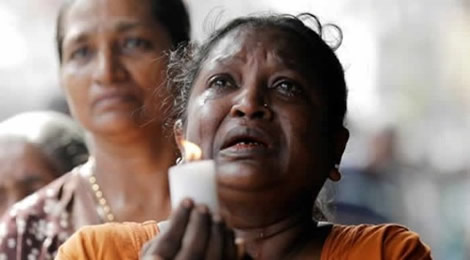
The Islamic State (IS) group may be linked to bomb blasts which killed 321 people and wounded 500 in Sri Lanka, the country’s prime minister has said.
Ranil Wickremesinghe said the government believed Sunday’s attacks could not have been carried out without help from terror groups abroad.
The first mass funeral was held on Tuesday as Sri Lanka marked an official day of mourning for the victims.
IS claimed the attack on Tuesday, although did not provide evidence.
The claim came via the group’s Amaq news outlet. Sri Lanka’s government meanwhile has blamed the blasts on local Islamist group National Thowheed Jamath (NTJ).
“This could not have been done just locally,” Mr Wickremesinghe said. “There had been training given and a coordination which we are not seeing earlier.”
Police have now detained 40 suspects in connection with the attack, all of whom were Sri Lankan nationals.
A state of emergency remains in effect to prevent further attacks.
The nearly simultaneous attacks targeted three churches packed for Easter services and three major hotels in the capital, Colombo.
An attack on a fourth hotel on Sunday was foiled, Mr Wickremesinghe said. He also warned that further militants and explosives could still be “out there” following the attack.
Who could be behind the attacks?
IS said it had “targeted nationals of the crusader alliance [anti-IS US-led coalition] and Christians in Sri Lanka”.
It provided no evidence for the claim but shared an image on social media of eight men purported to be behind the attack.
The group’s last territory fell in March but even then experts had warned it does not mean the end of IS or its ideology.
Mr Wickremesinghe said that only Sri Lankan nationals had been arrested in connection with the attack so far, but that some of the attackers may have travelled abroad before the bombings.
”We, certainly the security apparatus, are of the view there are foreign links and some of the evidence points to that. So if the IS (Islamic State) claimed it, we will be following up on this claim,” he added.
Earlier, the country’s defence minister Ruwan Wijewardene told parliament that NTJ was linked to another radical Islamist group he named as JMI. He gave no further details.
He also said “preliminary investigations” indicated that the bombings were in retaliation for deadly attacks on mosques in Christchurch, New Zealand, in March.
NTJ has no history of large-scale attacks but came to prominence last year when it was blamed for damaging Buddhist statues. The group has not said it carried out Sunday’s bombings.
The Sri Lankan government is facing scrutiny after it emerged the authorities were warned of about a possible attack.
Security services had been monitoring the NTJ but the prime minister and the cabinet were not warned, ministers said.
Sri Lankan President Maithripala Sirisena also said the reports were not shared with him, and has vowed to carry out a complete reorganisation of the security forces and the police.
Who were the victims?
Most of those who died were Sri Lankan nationals, including scores of Christians attending Easter Sunday church services.
Sri Lankan officials said 38 foreign nationals were among the dead, with another 14 unaccounted for. The death toll includes at least eight British citizens and at least 10 Indian nationals.
The mass funeral for about 30 victims took place at St Sebastian’s church in Negombo, north of Colombo, which was one of the places targeted in Sunday’s blasts. Another funeral service was scheduled for later on Tuesday.
A moment of silence was also observed at 08:30 on Tuesday, reflecting the time the first of six bombs detonated.
Flags were lowered to half-mast and people, many of them in tears, bowed their heads in respect.


